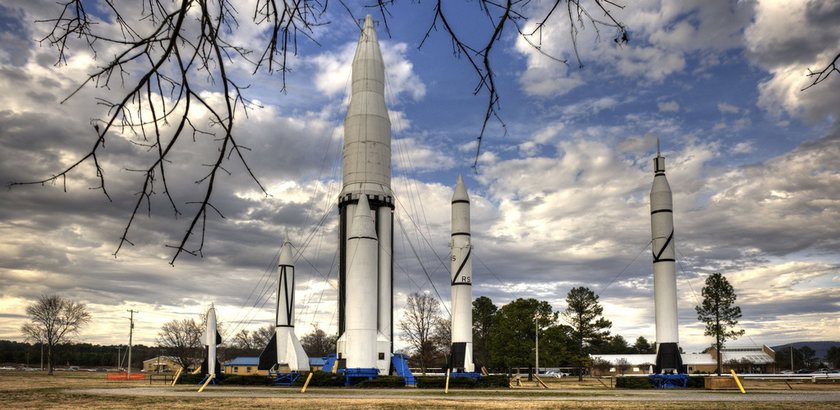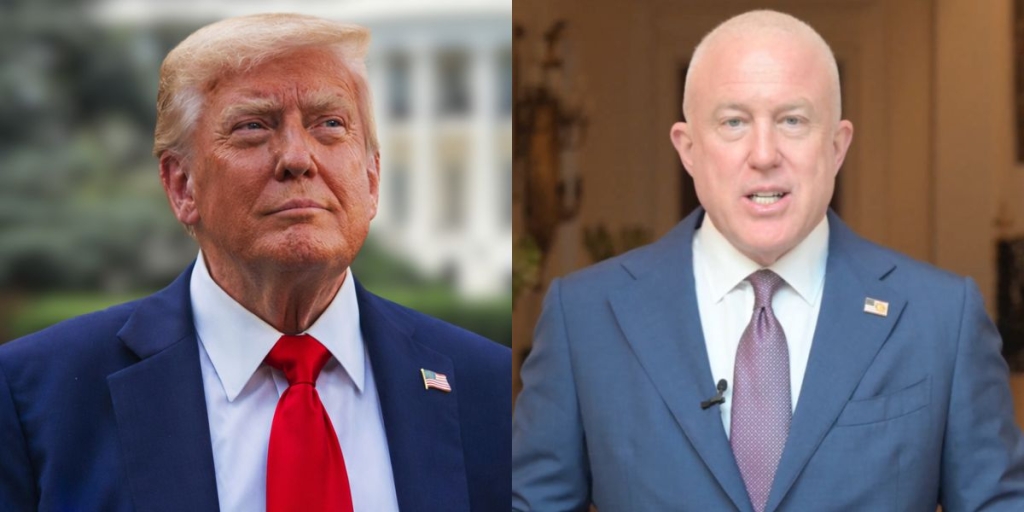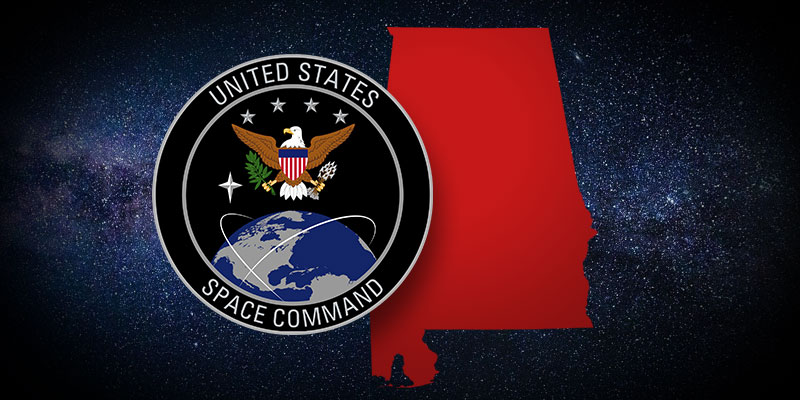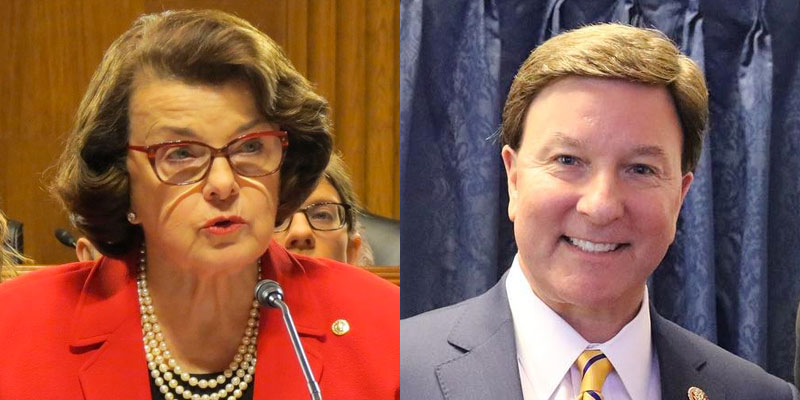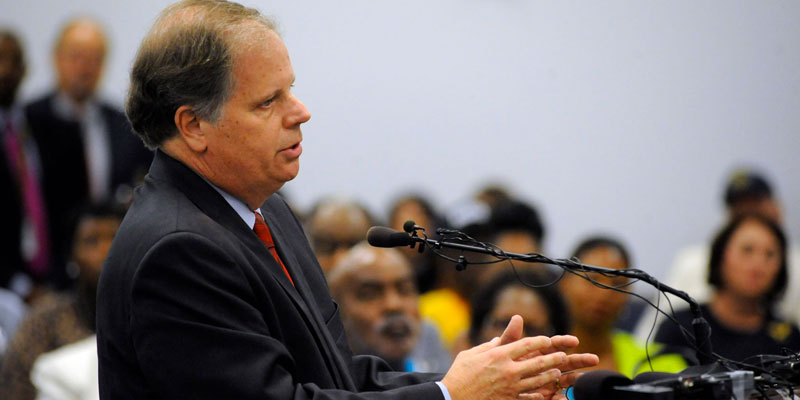The defense spending bill passed Thursday by the House of Representatives includes a provision aggressively pushed by an Alabama congressman — a space force.
But don’t expect Captain Kirk to be leading the Enterprise in missions beyond the solar system anytime soon. Those kinds of operations are still the stuff of science fiction.
The idea backed by Rep. Mike Rogers (R-Saks) is to create a separate space force — which would have equal footing with the Army, Navy, Air Force and Marines — using existing personnel currently working under the Air Force banner.
Rogers said he has heard jokes about what uniforms officers in the space force might wear, but he added that space operations tend to get buried under other priorities and that America, as a result, risks falling behind its competitors.
“All I’m talking about is national security space satellites,” he said in a recent interview. “What we’re proposing does not affect or deal with intelligence community satellites or the commercial satellites.”
The U.S. military has grown increasingly dependent on space satellites, which do everything from detect nuclear missile launches to allow soldiers and sailors to communicate with one another. Rogers noted the the Air Force is responsible for maintaining global positioning satellites that serve not just the military but commercial entities, as well.
And yet, some military experts warns the United States has grown complacent against threats posed by countries like Russia and China, which both have invested heavily in offensive capabilities in space.
“Urgent action is needed,” retired Air Force Gen. C. Robert Kehler wrote in a report last month by the Center for Strategic and International Studies. “Countering this new reality requires a clear understanding of the threats and an approach highlighted by renewed national commitment and increased investment.”
The think tank’s assessment identifies a number of vulnerabilities, ranging from cyberattacks and jamming to direct-ascent anti-satellite missiles.
The report estimated that China spent almost $11 billion on space last year, second only to the United States. In January last year, the country successfully tested an ASAT system, proving that it has the capacity to destroy satellites in low Earth orbit.
“We are completely dependent on national satellites to be able to fight and win wars,” Rogers said. “The problem is that our primary adversaries, Russia and China, they realize that. … And what they recognized a while back is that if they could get more advanced in that area and work faster, they could actually make our ability to use satellites vulnerable, and basically take our eyes and ears away from us.”
Rogers said China and Russia both already have reorganized their space corps. They have reached parity with the United States and are on a trajectory to pass the U.S., he said.
The idea of creating a separate space agency has strong bipartisan support in the House of Representatives but is not universally embraced. Defense Secretary James Mattis considers it unnecessary. And despite encouraging public statements from President Donald Trump, the White House Office of Management and Budget this week included space-related provisions in a list of items it wanted deleted from the National Defense Authorization Act.
“The Administration appreciates the Committee’s continued focus and attention as it executes its oversight responsibilities of our nation’s military space capabilities and forces,” the statement read. “However, the Administration believes that (the space provision) is premature. The Department currently is conducting a review of its space organizational and management structure as required … Once complete, the Administration will review these findings and deliver the required report and consult with Congress.”
That report is due in December. But Rogers said all three of the requirements included in this year’s defense bill need to be done whether or not the space corps becomes a separate military branch. Those mandates are to:
— Protect personnel currently working on space issues in the Air Force, preventing them from being directed to other tasks.
— Create a sub-unified commander responsible for joint war-fighting across the services.
— Develop a separate acquisition system within the Air Force for space infrastructure responsible for buying and deploying new satellites.
Rogers said he is convicted that the space force needs to be a separate branch.
“The Air Force cannot fix this problem. They’re the ones that allowed this to happen. They’re culturally focused on air dominance missions like bombers, fighter jets, etc.,” he said. “And the only way we’re ever going to be able to have an organizational structure of space professionals that can make sure we regain space dominance and keep it, is to segregate existing space professionals that are in the Air Force over into a separate segregated service, with their own budget, their own educational system, their own promotion system, their own culture that’s focused on space dominance.”
Speed is of the essence because satellite technology advances so quickly, Rogers said. But the Air Force’s “bloated bureaucracy” leads to unacceptable delays, he added.
Rogers said it takes six to eight years from the time a commander identifies a new space capability before it actually gets deployed. He said officials are estimating an even longer timeframe — up to 12 years — to replace the Space-Based Infrared System, which defects intercontinental ballistic missile launches.
“Folks here have the fear of God in their heart over this issue now,” he said.
Rogers said private companies operate on time periods of 18 to 24 months. He said the goal for the military is to get the average down to three years.
If the space force becomes a separate branch Rogers estimated it would have 15,000 to 25,000 employees initially. It would operate under the Air Force secretary much the same way the U.S. Marine Corps today is part of the Department of the Navy.
The new force would use the Air Force Academy and it would not involve the construction of new bases, Rogers said.
“You wouldn’t see a lot of structural differences,” he said. “It’s really organizational differences that you would see, in that we’d be able to go a lot faster, be a lot more efficient and effective.”
Having a separate branch would help the military attract the best and brightest space minds, Rogers said. He noted that not one of the 37 Air Force colonels recently nominated for brigadier general was a space professional.
Rogers said a separate space force would excite young people considering military careers.
“Because the truth is, working in space stuff is cool,” he said. “And it’s the future.”
@BrendanKKirby is a senior political reporter at LifeZette and author of “Wicked Mobile.”




